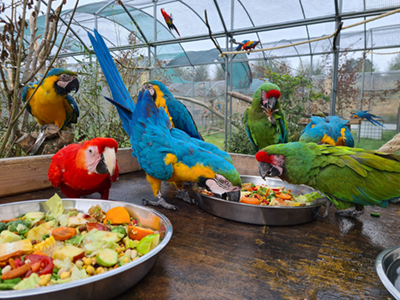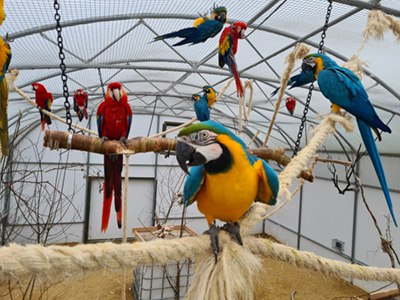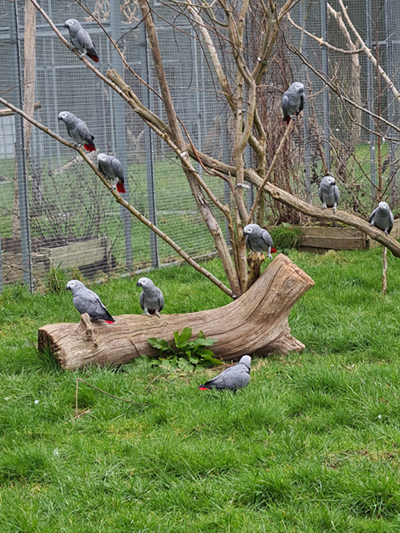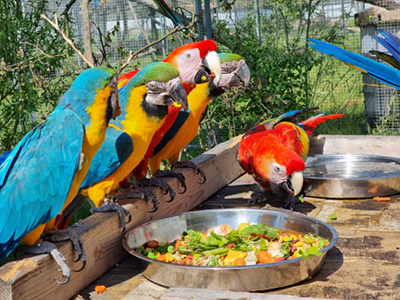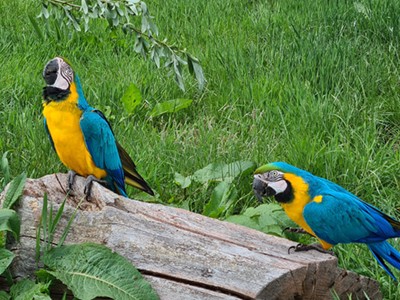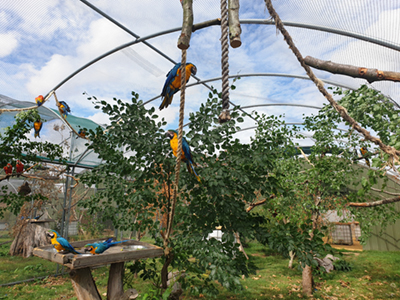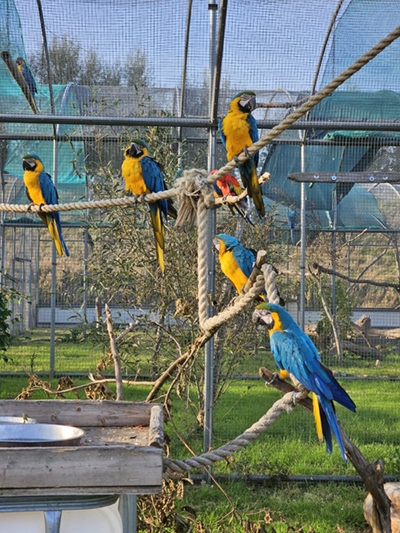Contributed by Rosemary Low
This story must act as a warning to breeders, especially those operating on a large scale. Ask yourself: what will happen to my birds when I can no longer care for them? It is irresponsible to expect someone else to deal with such a difficult situation. In a nightmare scenario, one bird was ultimately responsible for saving the lives of nearly 200 parrots, nearly all large macaws.
The story started when 15-year-old Joe achieved his dream of buying a Blue-and-yellow Macaw. The remarkable story of Kiwa, the macaw, and the Centre named after her, is already well known to many WPT members. In a nine-minute video, Joe tells it in his own words. (search for The Kiwa Centre, youtube.com). Eventually, he moved to Australia where the importation of birds is not permitted. Before he emigrated, he returned Kiwa to the breeder, who had a well-known macaw-breeding business. Some years later, on returning to the UK for a visit, he was able to visit Kiwa.
What he found horrified him: 200 large parrots were in dark, dirty inside accommodations overrun with rats. The breeder was then 84 years old and could no longer properly care for the birds, which Joe described as “sentenced to prison in terrible conditions”. Joe acted quickly. He contacted the World Parrot Trust and asked if the macaws could be accommodated at Paradise Park. For space reasons this was impossible. That didn't stop Joe: “Let’s buy a farm,” he said, as a home for the macaws. So in 2017, this is what he did - his property is situated in a remote part of the English countryside. With an enormous amount of help and advice from the staff at Paradise Park, he was told that erecting specially adapted polytunnels was the quickest and best way of providing accommodation for the birds.
When I visited this past October, the polytunnel aviaries took my breath away. They are high, light and very spacious, designed with great care and attention to detail. The aviaries occupy 62m x 32m and consist of four polytunnels divided into eight enclosures. Initially, there were 25 birds per enclosure. If the weather is bad, the occupants can be enclosed in a large indoor section of each aviary that has big windows. The inside service passage in front of each section of four aviaries is attractively planted with bamboo and flowering plants. Everywhere is extremely clean. I could not imagine how better aviaries could have been constructed, especially in an emergency.
The care of these parrots is in the hands of a dedicated World Parrot Trust team. They told me about the huge operation to transfer nearly 200 macaws and a few cockatoos to the site. Twenty people, including four vets and staff from Paradise Park, worked for two days to achieve this. All the birds had to be caught, DNA and blood-tested in health checks and microchipped. A few needed urgent veterinary attention before the move and, sadly, several could not be saved. Some of the macaws were re-homed in zoos – a group of Scarlet Macaws went to Dudley Zoo in the UK. The macaws now number 99, all flying strongly and in superb health. One of the aviaries houses 40 Grey Parrots, confiscated from the illegal trade. Human interaction is kept to an absolute minimum, as the plan is for these birds to be returned to Africa and to be released.
My two friends and I left the Kiwa Centre elated at how a looming disaster had been reversed into a triumph of compassion and joy. Everyone involved in this extraordinary rescue story deserves great admiration and many congratulations. Especially to Joe, without whom the plight of the birds might never have been uncovered.
The expenses involved in running the centre, especially food and heating, are considerable. If you would like to donate towards the expenses, please consider making a donation through the World Parrot Trust.
